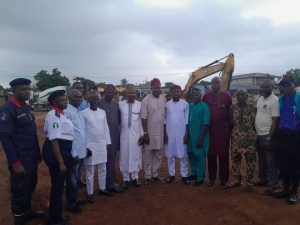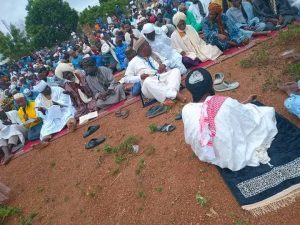The Prominent Position of Offa
Right from its inception, Offa has always been a prominent town. There is no period in recorded history when Offa was consigned to a subordinate role among the surrounding towns and villages. A quick look at the history of Offa will attest to this statement.
The Founding of Offa
Offa was founded by Olalomi, a prince from Oyo. He was a descendant of Oranmiyan, the youngest of the grandchildren of Oduduwa. Oranmiyan left Ile-Ife and subsequently founded Oyo. Out of all the territories founded by the other grandchildren of Oduduwa, Oyo was the most successful. It expanded and became an empire consisting of Yoruba and non-Yoruba people, with the territory extending to the present-day Benin Republic in the west and Ilorin in the north.
Offa’s Early Settlements
Olalomi, being an adventurous prince and a hunter, left Oyo until he settled and founded Offa. There were various settlements before the present site was finally chosen. These included Maika, Irese, Ilofa, and Offa Esun. From then onwards, Offa became prosperous and successful. Because the territory under Oyo was so expansive, it was divided into four regions for administrative effectiveness. These regions were Ekun Otun with headquarters at Igana, Ekun Osi with headquarters at Ikoyi, Ibolo with headquarters at Iresa, and Epo with headquarters at Idide.
Offa in the Ibolo Region
Offa belonged to the Ibolo region along with other towns like Oyan, Okuku, Ikirun, Osogbo, Ido, Ilobu, Ejigbo, and Ede. Within a short period, due to constant inter-tribal and intra-group wars, Offa became noted for its quality in terms of warriors and war generals. The headquarters of the Ibolo region was thus changed to Offa after the sacking of Iresa by Ilorin in the early 19th century. Thereafter, authority to other towns and villages emanated from Offa after receiving the same from Oyo, the national headquarters. The Olofa became the head of other Obas in the Ibolo region between Offa and Iwo.
Offa’s Military Prowess
Offa was so respected that hardly would there be a war by any of the surrounding nations without seeking advice and tactical support from Offa. Offa could boast of war generals like Balogun Ajayi Onibon, also known as Balogun Asegbe. The resilient qualities of Offa were further demonstrated by its ability to return to the present site after it was sacked during the reign of Olumarin Anilelerin and subsequent migration to Ido-Osun for the first time. After their return, Offa people participated in other wars to assist other towns like Iseyin and Ikoyi between 1878 and 1886. These wars were during the reign of Oba Morohunfolu Okunoye and his son, Oba Adegboye Atoloyetele.
The Sacking of Offa and Migration
The level of respect that Offa earned continued until the sacking of Offa by Ilorin during the reign of Oba Adegboye Atoloyetele in 1886. Offa then migrated to Ido-Osun for the second time when Oba Adegboye founded Offatedo. A lot of events transpired, and Oba Adegboye was eventually persuaded to return to Offa in 1902. Since then, Offa has been an important town in the comity of Yoruba towns. Offa was the headquarters of Offa Division between 1900 and 1917, and the Olofa was a second-class Oba. The sacking of Offa by Ilorin during the reign of Oba Adegboye brought Offa under the Ilorin province. It was in recognition of its importance in the region that the Nigerian railway line was extended to Offa in 1906.
British Rule and Administrative Changes
The advent of British rule and the subsequent presence of a resident at Ilorin made Offa continue to receive administrative instructions from Ilorin until the creation of Oyun Local Government Area (LGA) in 1977 with the headquarters at Offa. Although the territory under Offa in Oyun LGA was smaller than those under Offa as the headquarters of the Ibolo region before 1887, this trend was the same for all major powers of that period. In the corresponding period, the Oyo Empire itself shrank to Oyo LGA, which covered only Oyo town, Fiditi, Jobele, and other towns and villages around Oyo.
Political Influence and Resilience
The point being made here is that Offa has always been a very important town with a lot of political influence, mainly due to its reputation in wars and resilience. The social and physical development of Offa continues to be a testament to its rich history and enduring legacy.
The social and physical development of Offa is a remarkable journey of resilience, progress, and leadership. From its founding by Prince Olalomi to its pivotal role in regional administration and warfare, Offa has continually demonstrated its importance and influence. The town’s commitment to education, commerce, and industrial growth further cements its status as a leading community in Yoruba land. Offa’s legacy is one of strength and enduring progress, making it a beacon of development in the region.























